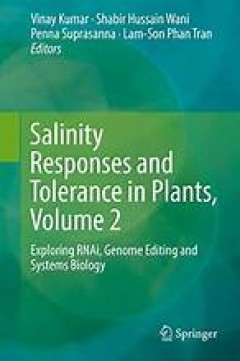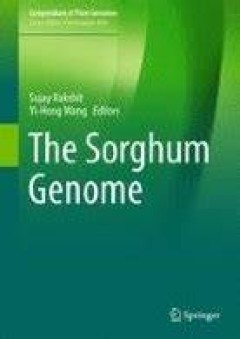Filter by

Inequality :a genetic history
"New genomic studies on ancient remains are unveiling different forms of inequality that were prevalent in the past and have shaped the genomes of humankind"--OCLC-licensed vendor bibliographic record.
- Edition
- -
- ISBN/ISSN
- 0262369176
- Collation
- 1 online resource.
- Series Title
- -
- Call Number
- -

Design and destiny :Jewish and Christian perspectives on human germline modif…
Scholars discuss the genetic modification of embryonic cells from the viewpoints of traditional Jewish and Christian teaching, considering both the possible therapeutic benefits of this technology and moral concerns about its implementation.OCLC-licensed vendor bibliographic record.
- Edition
- -
- ISBN/ISSN
- 9780262270632
- Collation
- 1 online resource.
- Series Title
- -
- Call Number
- -

The genetics of cognitive neuroscience
A primer on understanding the influence of specific genetic variants on cognition, affective regulation, personality, and central nervous system disorders.OCLC-licensed vendor bibliographic record.
- Edition
- -
- ISBN/ISSN
- 9780262259637
- Collation
- 1 online resource (xii, 297 pages) :illustrations.
- Series Title
- -
- Call Number
- -

Vertebrate Myogenesis Stem Cells and Precursors
This book addresses the differentiation control of skeletal muscle in different locations of the vertebrate body Particular attention is paid to novel regulatory molecules and signals as well as the heterogeneity of origin that have revealed a developmental overlap between skeletal and cardiac muscle. Different functional muscle groups are the product of the evolution of the vertebrate classes,…
- Edition
- -
- ISBN/ISSN
- 978-3-662-44608-9
- Collation
- -
- Series Title
- -
- Call Number
- -

Contemporary Bioethics
This book discusses the common principles of morality and ethics derived from divinely endowed intuitive reason through the creation of al-fitr' a (nature) and human intellect (al-‘aql). Biomedical topics are presented and ethical issues related to topics such as genetic testing, assisted reproduction and organ transplantation are discussed. Whereas these natural sources are God’s specia…
- Edition
- 1
- ISBN/ISSN
- 978-3-319-18428-9
- Collation
- Kedokteran
- Series Title
- -
- Call Number
- 617

Next Generation Sequencing in Cancer Research, Volume 2
Latest generation sequencing revolutionizes the fields of cancer research and oncology. This follow-up volume focuses more extensively on single cell sequencing of cancer and trials in drug resistance. Another exciting feature is the bioinformatics tools given, that can be used on cancer genome studies. Scientists around the world are attempting to find the root cause of cancer. A reasonable ca…
- Edition
- 1
- ISBN/ISSN
- 978-3-319-15811-2
- Collation
- Kedokteran/ Obat
- Series Title
- -
- Call Number
- 615

Salinity Responses and Tolerance in Plants, Volume 2
Soil salinity is a key abiotic-stress and poses serious threats to crop yields and quality of produce. Owing to the underlying complexity, conventional breeding programs have met with limited success. Even genetic engineering approaches, via transferring/overexpressing a single ‘direct action gene’ per event did not yield optimal results. Nevertheless, the biotechnological advents in last d…
- Edition
- 1
- ISBN/ISSN
- 978-3-319-90318-7
- Collation
- Kedokteran/ Obat
- Series Title
- -
- Call Number
- 615

The Sorghum Genome
This book provides insights into the current state of sorghum genomics. It particularly focuses on the tools and strategies employed in genome sequencing and analysis, public and private genomic resources and how all this information is leading to direct outcomes for plant breeders. The advent of affordable whole genome sequencing in combination with existing cereal functional genomics data has…
- Edition
- 1
- ISBN/ISSN
- 978-3-319-47789-3
- Collation
- Kedokteran/ Obat
- Series Title
- -
- Call Number
- 615

Breast Cancer
- Edition
- 1
- ISBN/ISSN
- 978-3-319-48848-6
- Collation
- Kedokteran
- Series Title
- -
- Call Number
- 617
- Edition
- 1
- ISBN/ISSN
- 978-3-319-48848-6
- Collation
- Kedokteran
- Series Title
- -
- Call Number
- 617

Next Generation Sequencing in Cancer Research, Volume 2
Latest generation sequencing revolutionizes the fields of cancer research and oncology. This follow-up volume focuses more extensively on single cell sequencing of cancer and trials in drug resistance. Another exciting feature is the bioinformatics tools given, that can be used on cancer genome studies. Scientists around the world are attempting to find the root cause of cancer. A reasonable ca…
- Edition
- 1
- ISBN/ISSN
- 978-3-319-15811-2
- Collation
- Biologi
- Series Title
- -
- Call Number
- 570
 Computer Science, Information & General Works
Computer Science, Information & General Works  Philosophy & Psychology
Philosophy & Psychology  Religion
Religion  Social Sciences
Social Sciences  Language
Language  Pure Science
Pure Science  Applied Sciences
Applied Sciences  Art & Recreation
Art & Recreation  Literature
Literature  History & Geography
History & Geography